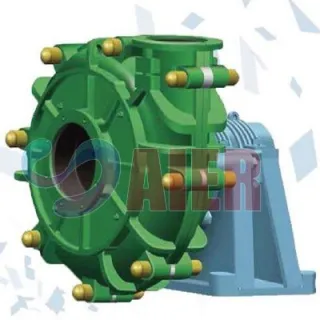აგვ . 15, 2024 16:33 Back to list
Reliable Pump Solutions for Efficient Lime Slurry Transportation and Handling by Leading Manufacturers
The Role of Pumping Systems in Lime Slurry Manufacturing
Lime slurry, a mixture of water and lime, is an essential component in various industrial processes, including water treatment, mineral processing, and construction. The manufacturing of lime slurry involves mixing finely-ground lime with water to create a stable suspension. The efficiency and effectiveness of this process largely depend on the pumping systems used for transporting and processing the lime slurry. Therefore, selecting the right pump is critical for manufacturers seeking to enhance productivity and reduce operational costs.
Understanding Lime Slurry
Lime, as a fundamental building block in many chemical processes, serves diverse functions, such as pH adjustment, neutralization, and as a flocculant in water treatment. When lime is hydrated, it forms a slurry that is easier to transport and incorporate into various applications. However, the handling of lime slurry poses unique challenges due to its abrasive nature, high viscosity, and tendency to settle. These characteristics necessitate specialized pumping systems to ensure reliable operation.
Types of Pumps Used in Lime Slurry Manufacturing
1. Centrifugal Pumps Centrifugal pumps are widely employed in lime slurry applications due to their ability to handle large flow rates. They function by converting rotational energy from a motor into hydrodynamic energy, allowing for the efficient movement of liquid. However, their effectiveness can be limited by the viscosity and solids content of the slurry. Manufacturers often resort to specific designs, such as heavy-duty impellers, to enhance their performance with abrasive materials.
2. Positive Displacement Pumps Positive displacement pumps, including diaphragm and gear pumps, are another viable option for transporting lime slurry. These pumps operate by trapping a fixed volume of liquid and forcing it through the discharge pipe. They are particularly advantageous for high-viscosity slurries or applications requiring precise flow control. Their ability to maintain consistent flow rates regardless of pressure changes makes them ideal for certain lime slurry processes.
3. Progressive Cavity Pumps Progressive cavity pumps are becoming increasingly popular for lime slurry applications due to their unique design that can handle solids-laden liquids efficiently. They consist of a helical rotor and stator, allowing for smooth and continuous flow, which minimizes shear and degradation of the slurry. This characteristic is critical in maintaining the slurry’s uniformity during transfer.
pump for lime slurry manufacturer

Selecting the Right Pump Manufacturer
Choosing a reliable pump manufacturer is crucial in ensuring the successful integration of pumping systems into lime slurry production
. When evaluating manufacturers, several factors should be considered- Experience and Expertise A manufacturer with a proven track record in lime slurry applications will have valuable insights into the challenges and requirements of handling inert and abrasive materials.
- Customization Options Lime slurry processes can vary significantly between industries. A good manufacturer should offer customizable solutions to meet specific operational needs.
- Quality and Durability Given the abrasive nature of lime slurry, the materials and construction of the pump are paramount. Manufacturers that use high-quality materials and robust designs will ensure longevity and reduced maintenance costs.
- Technical Support and Service A reliable manufacturer should provide strong after-sales support, including installation, maintenance, and troubleshooting services, to minimize downtime and enhance operational efficiency.
Conclusion
In summary, the manufacturing of lime slurry is a critical process in various industries, and the choice of pumping systems plays a pivotal role in its effectiveness. Whether opting for centrifugal pumps, positive displacement pumps, or progressive cavity pumps, manufacturers must consider various factors to select the most suitable solution. By partnering with a reputable pump manufacturer, producers of lime slurry can enhance efficiency, improve product consistency, and ultimately drive operational success. The investment in the right pumping system will yield substantial returns in productivity and cost savings, reaffirming the importance of this decision in the overall manufacturing process.
-
Top China Submersible Slurry Pump Supplier Durable & Efficient Solutions
NewsMay.17,2025
-
Submersible Pump Spares Manufacturer High-Quality & Durable Components
NewsMay.17,2025
-
Vertical Centrifugal Sump Pump Supplier China Factory Solutions
NewsMay.16,2025
-
Vertical Spindle Slurry Pump Suppliers High-Quality China Manufacturers
NewsMay.16,2025
-
High-Quality Casting Submersible Pump Parts Manufacturer Durable Solutions
NewsMay.16,2025
-
Vertical Sump & Mud Screw Slurry Pump Company Durable Solutions
NewsMay.15,2025
